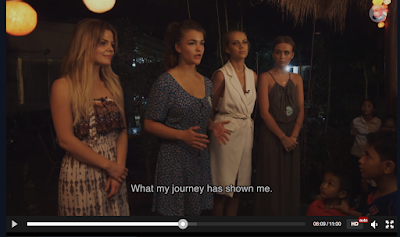Links & Contents I Liked 183

Hi all, I'm a bit proud of myself that the Link Review has become a regular weekly feature again amidst the approaching grande final of the semester! Development news with more great career advice; sexual harassment at ICT4D events; the second disaster of unwanted donations; migrant brides-it’s complicated; World Humanitarian Summit is a mess (file under ‘Breaking news’…); celebrities and designer activism; Our digital lives on people and ideas that make it into rankings and not beyond; knowledge economy myths; OKCupid data ethics. A detailed analysis of communication in Sierra Leone is Hot off the digital press . Academia with data, metrics and publishing capital(ism); and an anthropological take on Beyonce’s fashion brand disaster. Enjoy! New from aidnography Development tourism without adult supervision-Reflections on Aftenposten’s Sweatshop documentary I like the idea that a group of young women takes initiative, is active, inquisitive, speaks up and talks on the ...
